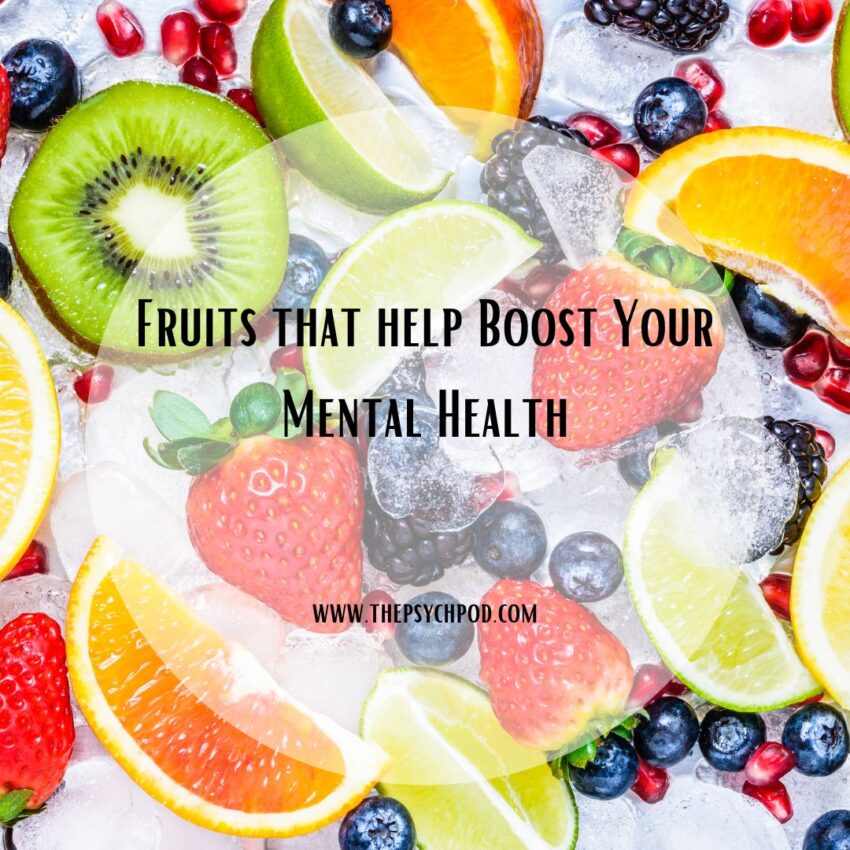Incorporating certain fruits into your diet can positively impact your mental health by providing essential nutrients that support brain function and mood regulation. Here are some fruits known for their mental health benefits:
Berries (Strawberries, Blueberries, Raspberries, Blackberries): Rich in antioxidants, berries can help reduce inflammation and stress. They also contain flavonoids, which are known to improve mood and cognitive functions.
Bananas: High in vitamin B6, bananas help synthesize feel-good neurotransmitters like dopamine and serotonin. They’re also a great source of natural sugar and fiber, providing a stable energy release.
Oranges: The high vitamin C content in oranges can help reduce stress and boost mood. Vitamin C is also crucial for producing neurotransmitters that affect mood.
Avocados: Loaded with healthy fats, avocados support brain health and function. They’re also rich in tryptophan, an amino acid involved in serotonin production, which is often called the ‘feel-good’ neurotransmitter.
Apples: Apples contain antioxidants and fiber, which can help reduce oxidative stress and inflammation in the brain, potentially lowering the risk of mental health disorders.
Cherries: Cherries are high in polyphenols and vitamin C, which have anti-inflammatory and antioxidant effects that may help improve mood and combat stress.
Kiwis: Kiwis are high in vitamin C, E, and serotonin, a neurotransmitter that helps regulate mood, appetite, and sleep—factors closely linked to mental health.
Grapes: Grapes, especially the skins and seeds, contain resveratrol, a compound that has been linked to many health benefits, including mood regulation and protection against depression.
Pomegranates: Rich in polyphenols, pomegranates have antioxidant properties that can help improve memory and brain function, contributing to better mental health.
Coconuts: Coconuts are a versatile fruit that can have positive effects on mental health. They are rich in medium-chain triglycerides (MCTs), a type of fat that’s metabolized more efficiently by the body and can be used as an immediate source of energy for the brain. The oil extracted from coconuts is particularly rich in these fats and has been studied for its potential to improve cognitive function and support brain health. Additionally, coconuts contain various nutrients essential for maintaining neurotransmitter levels and reducing stress, such as magnesium and B vitamins. Incorporating coconut into your diet by drinking coconut water, or adding virgin coconut oil to your meals can contribute to overall brain health and mental well-being.
Incorporating a variety of these fruits into your diet can contribute to an overall healthier lifestyle and potentially improve your mental well-being. Remember, though, that diet is just one aspect of mental health, and it’s essential to consider other factors such as exercise, sleep, and stress management techniques.
Dr. Velmi, Psy.D.
